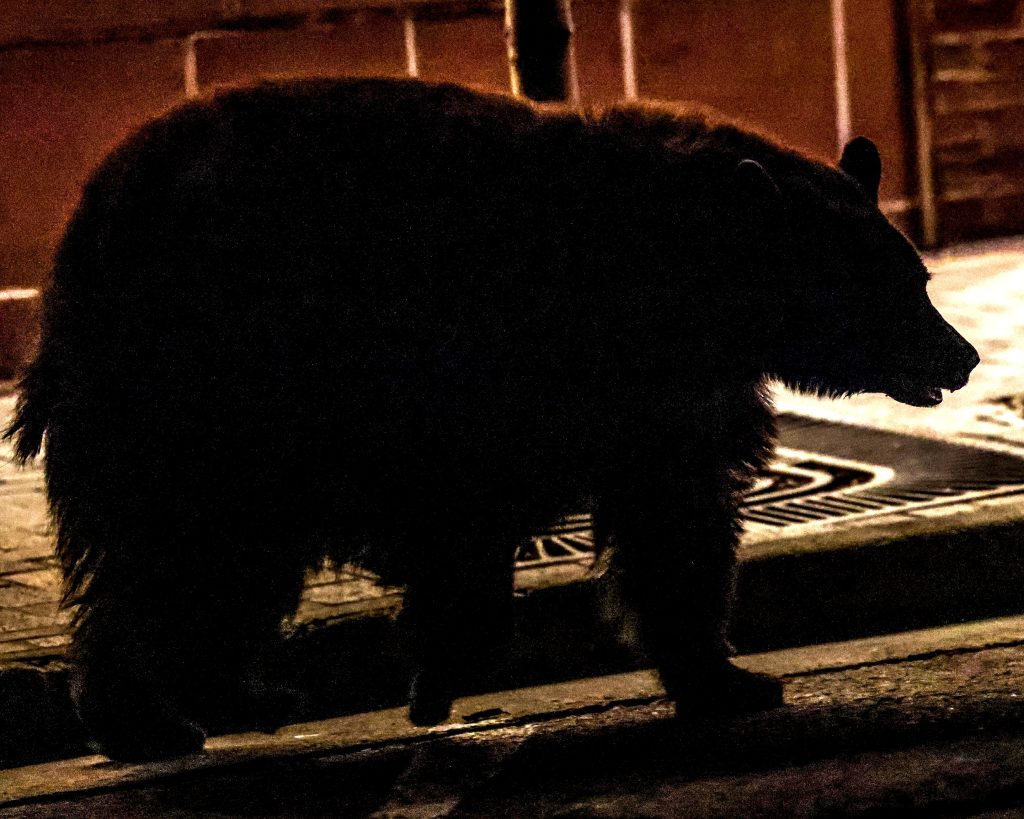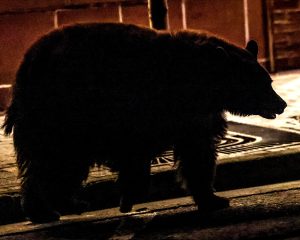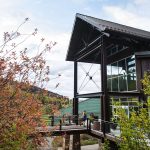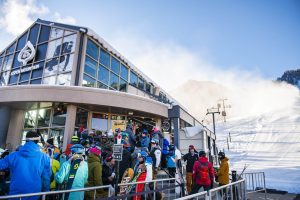Year-round access to food could disrupt hibernation for Aspen bears
The phenomenon already seen in Lake Tahoe isn’t out of reach for the Roaring Fork Valley

Austin Colbert/The Aspen Times
Bears have been a common sight in Aspen recently, foraging for food before their winter hibernation begins. But with easy access to trash, dumpsters, and more, it’s possible that hibernation might not happen at all.
A phenomenon already seen in the Lake Tahoe area, year-round access to human food is allowing bears to stay awake through the winter. Contrary to popular belief, hibernation evolved not as a way to escape the cold, but as a way to persevere through months without access to calories.
“We often associate hibernation with winter, and once winter has arrived, bears should be in their dens hibernating,” Colorado Parks and Wildlife Northwest Region Public Information Officer Rachael Gonzales shared with The Aspen Times. “This is actually not always the case, and while we associate winter with hibernation, it’s really the lack of a natural food source that signals it’s time to head into the den for black bears.”
Gonzales confirmed that there have already been historical reports of bears continuing to remain active in A8, the Roaring Fork area, during the winter months, although this hasn’t been a majority of animals.
“While there are a handful of bears that remain active every few years, we have not observed this to be representative of the majority of the population,” according to Gonzales. “Most bears still den during the winter months when natural food sources are limited or not available and emerge again in the spring when new growth provides food resources.”
Sunrise Rundown: Headlines. Breaking News. Local Updates.
What’s happening in Aspen, in one click.
Sign up for the Sunrise Rundown at AspenTimes.com/newsletter
Lara Xaiz, wildlife coordinator for Aspen, emphasized that continued Aspen community efforts to secure access to trash and human food sources help ensure that bears aren’t present in town throughout the winter.
“Our community has done such a good job securing trash that there isn’t enough to keep a bear fed through the winter,” Xaiz said. “I saw some scat this morning that was made up of grasses only, so they aren’t getting much from people. Only a few trash containers knocked over, so things are slowing down — fingers crossed!”
She noted that Lake Tahoe has many, many more short-term rentals than Aspen, making it unique in how many people in the community might not be used to coexisting with bears. However, she also said that just because Aspen is in a good position to prevent disrupting winter bear behavior doesn’t mean community members can let their guards down.
“It’s still important to keep attractants secured,” she said. “There is still bear activity around town every night. Our community members should remain diligent about securing their trash. There is a group of a mother bear and three cubs that have been out during the day and night. Give them lots of space, and keep your pets leashed.”
Bears who do stay awake during the winter months due to human food access face increased risk when they remain active instead of denning, according to Gonzales, but that risk comes more from the non-natural food source rather than being awake all year.
“Because bears aren’t true hibernators, there may be times where they will leave their den during the winter, even for a very brief period of time,” she shared. “The risk to bears staying awake because they’ve found a human food source is simply the fact that human food and/or trash is not an appropriate food source for bears. Even things like birdseed or corn used in fall/winter decoration is harmful to bears.”
To read more about BearWise’s recommendations for communities sharing the landscape with bears, go to aspentimes.com/news/as-bears-remain-active-in-aspen-bearwise-highlights-human-responsibility.
Year-round access to food could disrupt hibernation for Aspen bears
Bears have been a common sight in Aspen recently, foraging for food before their winter hibernation begins. But with easy access to trash, dumpsters, and more, it’s possible that hibernation might not happen at all.
Colorado ski industry worried about slowdown in J-1 visas that are ‘essential’ for resort area workforce
Ski areas in Colorado and across the country are concerned about reported processing slowdowns for seasonal worker visas ahead of the 2025-26 ski season, according to the industry’s leading trade group.










